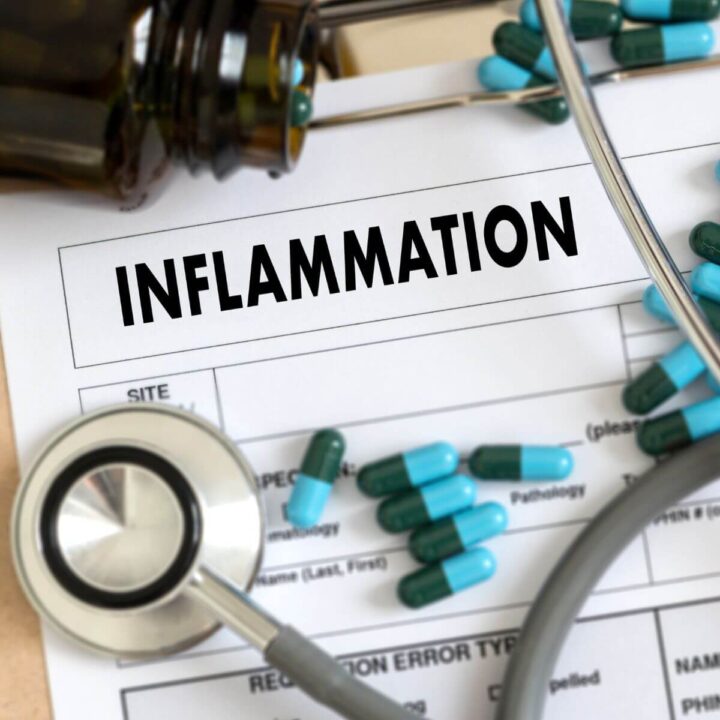A well-balanced diet rich in essential vitamins, minerals, and other nutrients is crucial for maintaining a robust immune system. A vitamin B12 deficiency also has an impact on the immune system. I discuss how to combat nutrient deficiency immune system health issues.

Nutrient deficiency testing is one of the first things you should discuss with your doctor if you have a low functioning immune system.
Table of Contents
💉 Nutrient Deficiency Immune System Health Problems
Nutrient deficiency can have a substantial impact on the proper functioning of our immune system, leading to a diminished ability to fight off infections and illnesses. Vitamin deficiency is often seen in those with a compromised immune system.
Remember, maintaining a varied and balanced diet is the key to ensure adequate nutrient intake.
If you suspect you may have nutrient deficiencies, it's always best to consult with a healthcare professional for proper diagnosis and advice.
Stay healthy and nourish your immune system!
Now let's discuss nutrient deficiencies and the connection to your immune system.
Vitamin C
Vitamin C is a potent micronutrient and antioxidant that supports the immune system by promoting the production and function of immune cells.
A deficiency in vitamin C can weaken the body's defenses against infections and impair wound healing.
In fact, this powerful antioxidant is known for its immune-boosting properties. It helps stimulate the production of white blood cells, which are essential in fighting off pathogens.
Citrus fruits, berries, and leafy greens are excellent sources of vitamin C.

Vitamin D
Vitamin D plays a crucial role in modulating the immune response and enhancing the function of immune cells. Deficiency in vitamin D is associated with increased susceptibility to infections and inflammatory disorders.
Often referred to as the "sunshine vitamin," vitamin D plays a crucial role in regulating the immune system. It helps activate immune cells and enhances their ability to combat infections.
Natural sources of vitamin D include sunlight, fatty fish, and fortified dairy products.
Zinc
Zinc is essential for immune cell development and function. A zinc deficiency can lead to impaired immune response, increased susceptibility to infections, and delayed wound healing.
Adequate levels of zinc are vital for a strong immune response. This mineral supports the production and function of immune cells.
Foods such as lean meats, shellfish, legumes, and seeds are good sources of zinc.
Iron
Firstly, iron is necessary for the proper functioning of immune cells and the synthesis of hemoglobin. Iron deficiency anemia can weaken the immune response and increase vulnerability to infections.
Iron deficiency can impair the immune system, leading to a decreased ability to ward off infections.
So, you need to strengthen the immune system in natural ways, such as better nutrition. Including iron-rich foods like red meat, spinach, lentils, and fortified cereals can help maintain optimal iron levels.
Selenium
Selenium is a mineral that supports the production and function of immune cells and acts as an antioxidant. A deficiency in selenium can reduce immune function and impair the body's ability to combat infections.
This trace element is known for its antioxidant activity and plays a crucial role in supporting optimal immune function.
Incorporating selenium-rich foods like Brazil nuts, seafood, and whole grains into your diet can help ensure adequate intake.
Vitamin A
This vitamin plays a crucial role in supporting the health of the skin and mucous membranes, which act as significant barriers against pathogens.
Carrots, sweet potatoes, and leafy green vegetables are excellent sources of vitamin A.

B Vitamins
Various B vitamins, including B6, B9 (folate), and B12, are important for immune function. Deficiencies in these vitamins can lead to weakened immune responses and increased susceptibility to infections.
Also, these vitamins are essential for maintaining a healthy immune system. They play a vital role in immune cell production and function.
Whole grains, legumes, leafy greens, and animal products are good sources of B vitamins.
📥 GET THIS RECIPE IN YOUR INBOX 📥
B12 Deficiency and its Impact on the Immune System
Vitamin B12 is an essential nutrient that plays a vital role in maintaining the health of our bodies, including our immune system.
A deficiency in vitamin B12 can have several implications on the immune system functionality.
When our body lacks an adequate amount of vitamin B12, it can lead to a weakened immune system. This is because B12 is required for the production of healthy red blood cells, which carry oxygen throughout the body.
Oxygen is crucial for the proper functioning of immune cells, including those responsible for identifying and eliminating harmful pathogens.
Moreover, B12 deficiency can affect the production and activity of white blood cells, which are the cornerstone of our immune system.
White blood cells defend our body against infections and help to regulate the immune response. Without enough vitamin B12, the white blood cells may not function optimally, making us more susceptible to infections and diseases.
Additionally, vitamin B12 deficiency can impact the overall energy levels in the body. Fatigue and weakness are common symptoms of B12 deficiency, which can further compromise the immune system's ability to defend against pathogens.
How to Address a B12 Defiency
To address B12 deficiency and support a healthy immune system, it is important to ensure an adequate intake of vitamin B12 through dietary sources such as animal products (meat, fish, dairy) or B12-fortified foods.
In some cases, B12 supplements may be recommended, especially for individuals with certain health conditions or dietary restrictions.
If you suspect a B12 deficiency or have concerns about your immune system's health, it is recommended to consult with a healthcare professional who can provide personalized advice and guidance.
By addressing any deficiencies and adopting a balanced diet, you can help maintain a robust immune system and overall well-being.
Remember, prioritizing your health and seeking professional advice is key to maintaining optimal body function and vitality.
Vitamin E
Vitamin E is another powerful antioxidant that helps protect immune cells from oxidative stress. Deficiency in vitamin E can negatively impact the immune system's ability to function optimally.
Nuts, seeds, and vegetable oils are rich sources of vitamin E.
Omega-3 Fatty Acids
Omega-3 fatty acids have anti-inflammatory properties and support immune cell function.
A deficiency in these essential fatty acids can contribute to chronic inflammation and immune dysfunction.
These healthy fats contribute to a balanced immune response and help reduce inflammation in the body.
Fatty fish (such as salmon and sardines), flaxseeds, and chia seeds are excellent sources of omega-3 fatty acids.
Protein
Protein is essential for building and repairing tissues, including immune cells. Inadequate protein intake can impair the immune system's ability to function properly.
🧪 Nutrient Deficiency Testing
Nutrient deficiency testing is crucial for individuals with a compromised immune system. When the immune system is not functioning optimally, it is important to identify any deficiencies in essential nutrients that could be contributing to this state of affairs.
By conducting a thorough analysis of your nutrient levels, healthcare professionals can provide targeted recommendations to address any deficiencies and support your immune system's optimal functioning.
Regular nutrient deficiency testing is an important step towards maintaining your overall health and well-being.
Remember to consult with your doctor to determine the best course of action for your specific situation.
🗣️ So, Let's Discuss Nutrient Deficiency And The Immune System
Did any of these nutrient deficiencies surprise you? 😳 Let me know in the comments. Will you ask your doctor for nutrient deficiency testing today?
So, if you're experiencing symptoms of nutrient and vitamin deficiency and have an immune system disorder, don't hesitate to seek personalized support.
If you need personalized assistance with your symptoms, don't hesitate to contact me. Let's work together to embark on a journey towards a healthier, vibrant life. Contact me.
You can also connect with me @EatYourNutrition on Instagram. I love seeing your photos. #EatYourNutrition #LauraVillanueva
ADDITIONAL RESOURCES
Also, for further reading and guidance on how to go about treating the root causes of gut inflammation, consider exploring the following resources:
In addition, if you suspect you have a gut hormone imbalance or simply want to improve your gut and hormone health, download my free guide, 10 Simple Ways To Support Your Gut Health Naturally
- Want a simple recipe guide and gut health meal plan packed with the key to great gut health? So, if you have stomach and hormone issues, try this meal plan and recipes inside the Gut Health Reset Meal Plan.
- Need More Support - Join my Restore Your Gut Health Fundamentals Program. Register here.



















Comments
No Comments